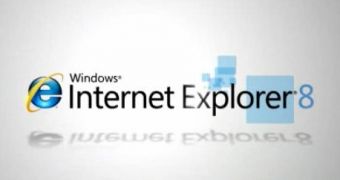Just as Windows Vista moved away Windows XP by sacrificing compatibility, so will Internet Explorer 8 redefine the way Microsoft's proprietary browser deals with legacy content. This because, by embracing modern web standards in the default configuration, IE8 will also introduce compatibility issues. However, Microsoft is providing the necessary resources designed to mitigate scenarios involving incompatible content. The Application Compatibility Toolkit (ACT), now at version 5.0 with the Internet Explorer Compatibility Test Tool (IECTT) and Internet Explorer Compatibility Evaluators (IECE) components, is set up to evaluate the level at which an application will play nice with Windows Vista, Internet Explorer 7 and even Internet Explorer 8.
“ACT allows compatibility data to be uploaded from individual machines to a central location for analysis, grouping and reporting. Once an issue has been identified, help will be available on how to resolve a particular issue or create a workaround. Furthermore, partners and customers using ACT are able to post comments to the Online Application Community, where they can share data and information about application compatibility testing,” explained Jatinder Mann, IE Program Manager.
Following the launch of IE8 Beta 2, Microsoft is up to no less than 31 compatibility events, the first 19 already available for IE7, and the additional 12 introduced for IE8. According to Microsoft, the dozen compatibility events for IE8 involve Cross-Site Scripting Filter; Intranet at Medium Integrity Level; DEP/NX Crash Recovery 1048; Standards Mode; File Name Restriction; Codepage Sniffing; AJAX Navigation; Application Protocol; Windows Reuse Navigation Restriction; MIME Sniffing Restrictions - no IMAGE elevation to HTML; Web Proxy Error Handling Changes; and Certificate Filtering.
At the same time, Microsoft took the Application Compatibility Toolkit one step further, beyond the simple reporting of incompatibility issues. The toolkit is now designed to provide testers with the necessary guidance to resolve the problems encountered.
“The IECTT helps identify your Web-based issues, shows your results in real time, and allows you to upload and view the data in the Application Compatibility Manager (ACM), a part of the ACT toolkit,” Mann stated. “The IECE can be deployed within an enterprise and will help identify Web-based issues in the background.”
Internet Explorer 8 (IE8) Beta 2 is available for download here.
Microsoft Application Compatibility Toolkit is available for download here.
Internet Explorer Application Compatibility can be downloaded from here.

 14 DAY TRIAL //
14 DAY TRIAL //